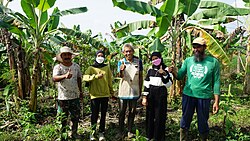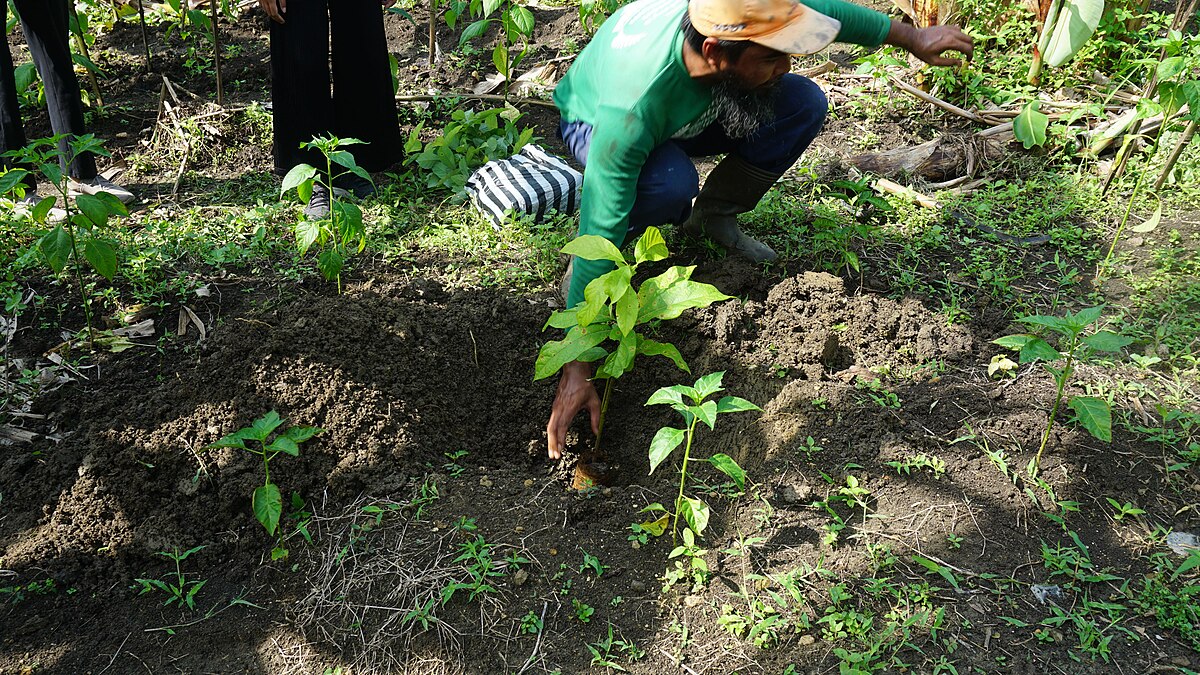Friday, August 29, 2025
Farmers in Jabungan Village, Semarang, are voicing concerns this week as the prolonged dry season threatens the survival of thousands of avocado trees planted through a reforestation program with LindungiHutan and Perhutani.
The trees, part of more than 15,000 planted since 2022, are now entering a crucial growth stage. Local farmers say water shortages in recent weeks have forced them to create improvised irrigation systems, while calling for additional support in fertilizer and agroforestry training.
“Right now many trees are struggling. Some survived only because we built simple pipes from nearby springs,” said Ahmad Rozin (45), a member of the Jabungan farmers’ group, on Tuesday (19/8)
According to Rozin, the ecological changes are visible, including cooler air, better soil, and new water absorption points. But with the dry season persisting into August 2025, residents worry that the economic benefits expected from avocado harvests may be delayed further.
Still, the economic benefits have yet to materialize. Avocado harvests typically take two to three years to bear fruit. “For now, it just looks green. The income isn’t there yet. Some neighbors also lose interest because avocado trees are harder to maintain,” Rozin added.
Challenges remain. The hilly terrain, unstable soil, and unpredictable weather have reduced survival rates. In one symbolic planting of 1,000 trees with national media coverage, only about 30 percent survived because the event took place before the dry season.
According to LindungiHutan, Jabungan is part of a broader landscape restoration strategy in Central Java. “Reforestation isn’t only about planting trees but ensuring they bring value to the community,” said Aminul Ichsan, Operational Manager of LindungiHutan.
Nationally, the Ministry of Environment and Forestry (KLHK) reported that Indonesia recorded a net deforestation of 175,400 hectares in 2024, while successfully rehabilitating 217,900 hectares. Initiatives like Jabungan’s are seen as vital contributions to the country’s forest and land restoration goals, while also helping communities adapt to climate change.

For Jabungan residents, the journey is far from over. While the green landscape is becoming a reality, they hope stronger collaboration with stakeholders will ensure the trees grow into both an environmental and economic legacy. “If LindungiHutan continues to grow, the community will grow as well. Hopefully, the partnership will only get stronger,” Rozin concluded.
Beyond Jabungan, LindungiHutan is also inviting the private sector to play a role through CorporaTree, its dedicated CSR platform for tree planting. The program enables companies to support reforestation projects across Indonesia, linking environmental restoration with community empowerment. By channeling corporate responsibility into concrete ecological action, initiatives like CorporaTree aim to ensure that reforestation is not only a local success but a national movement for a greener, more resilient future.



